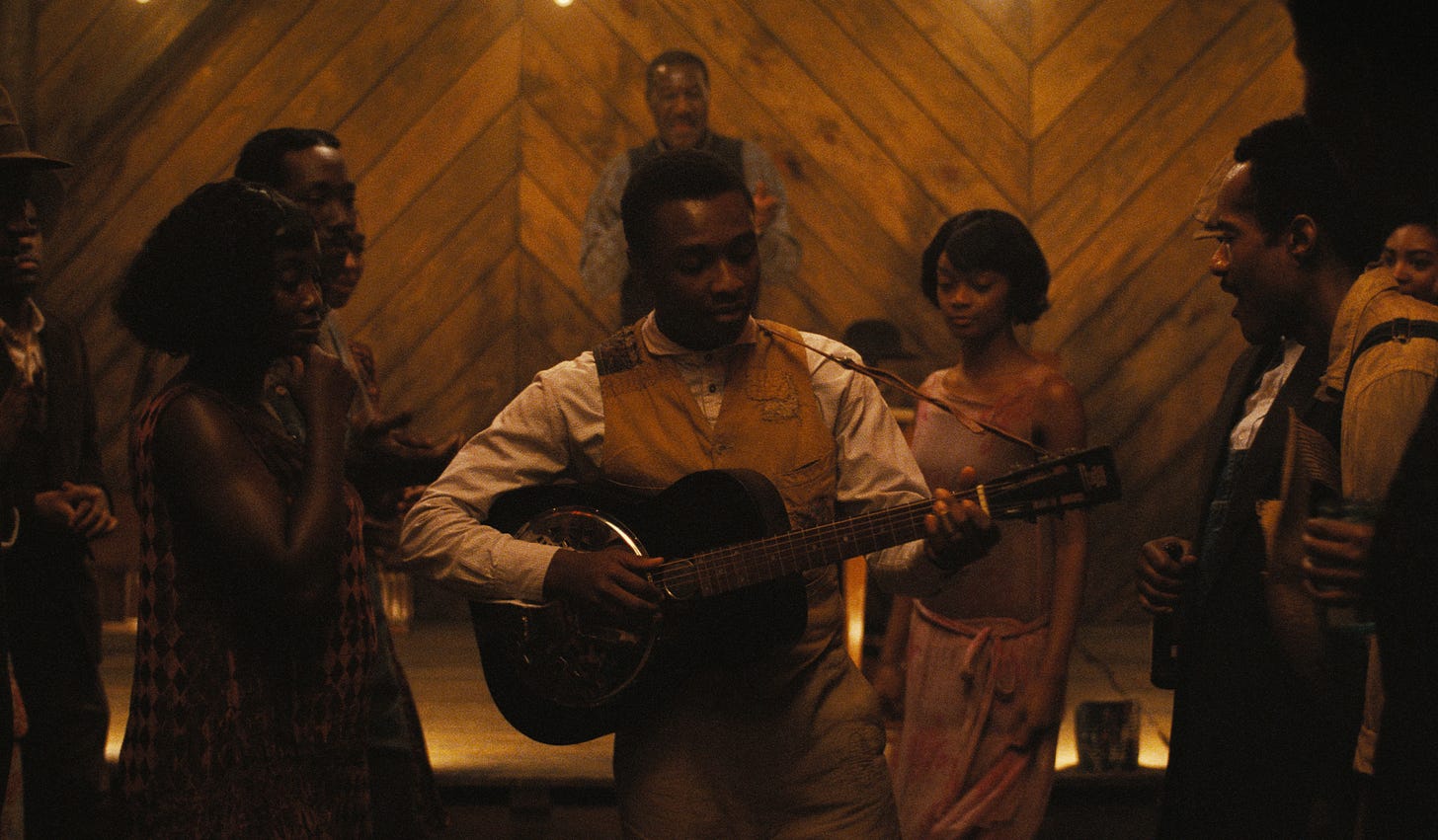'Sinners' Is Very Good, but That One Scene Almost Ruins It
You know which one
I finally saw Sinners. It was a Wednesday matinee on the last day this AMC was showing it in IMAX, and the theater was packed, which was really cool. People will go to the movies if there’s something good for them to see.
I really enjoyed the movie. Ryan Coogler is the true successor to Steven Spielberg, in that he seems to have an innate ability for turning his personal interests into something broadly accessible. He knows what people want to see (Hailee Steinfeld spitting in Michael B. Jordan’s mouth). Even the vampires get a happy ending. But as Howard Hawks famously said, a great movie is three good scenes and no bad ones, and Sinners comes short of greatness, because there’s a scene that almost derailed the whole movie for me.
If you’ve seen the movie, you might think I’m referring to the scene with the Riverdancing vampires. I’m not. That scene is awesome, and I’ll come back to it later. I’m talking about the other one. The one where the kid plays the blues so good that he reaches through time and communes with the spirits of African drummers and Chinese dancers from the past and b-boys and members of Funkadelic from the future. They all appear in the juke joint and literalize the theme of music transcending time and place described in the film’s prologue.
The purpose of the scene is very clear as an illustration of theme, and there’s nothing wrong with conceptually. But the execution is so cheesy that I almost rolled my eyes out of the theater. It’s the hammering literalism of the way the idea is depicted, the “ok boomer”-ism of having the future of Black music depicted by guys in the style of DJ Kool Herc and Bootsy Collins, and the way it shatters the film’s immersive illusion for only one scene in the middle of the movie. For about a minute, we’re not in magical 1932 Mississippi, we’re in a Spotify commercial. It comes out of nowhere in a bad way, like it’s an idea not fully integrated into the story as a whole. I was not surprised to find out that it was a pretty late addition to the script.
The ancestor/descendent scene sits in stark contrast with the musical scene later in the film, which is one of my favorite scenes in the movie. That one, where the lead vampire Remmick does an Irish stepdance and sings “Rocky Road to Dublin” while all the people he’s turned into vampires that night sing with him and cheer him on, is conceptually similar but works much better than the other scene. It captures the frenzied, ecstatic energy of the vampires as they wait to get inside the building. Its strangeness makes it all the more menacing. It has a similar out-of-time-and-space quality, where the vampire is doing an ancestral dance, but in a less literal way that allows the audience to come to their own understanding of Remmick’s character, history, and intentions. It moves the story forward in a more effective way than the other scene, which beats the audience over the head with its point. (Honestly, it would have been fine if it were just ancestors. It’s the people from the future that pushed it into absurdity for me.)
But, again, Ryan Coogler has great instincts for what people want to see. Much better than I do, because the reaction I’m seeing to the scene online is mostly rapturous. People said it made them cry and dance around in the theater and they've never seen anything like it. It’s not my place to say those people are wrong. It’s an emotional reaction. But I think people are so starved for anything bold and original that they’re overrating this moment because it is bold and original. And to be clear, I appreciate the effort. Even though it doesn’t work for me personally, I respect Coogler for taking a big swing. I’d rather have a conversation about something bold that doesn’t work than watch something that plays it safe there’s nothing to talk about.




I wonder... And I am genuinely curious... What your view on music in general is? Not specific genres or anything. But I do wonder if how much that scene resonates is related to at what level people feel music? I had friends in high school who had deep, emotional reactions to music and would feel compelled to just get up and dance and get lost in it.. The sort of people who could trip and hallucinate to music without the need for drugs. People who were always saying "feel the music, man."
I was never one of those people.
I might be talking out of my ass, but my suspicion is that this scene probably speaks to people in that former category the most.
I mean I thought it was brilliant but it was a gamble and I can see it not payoff for all